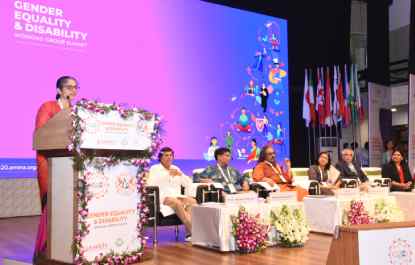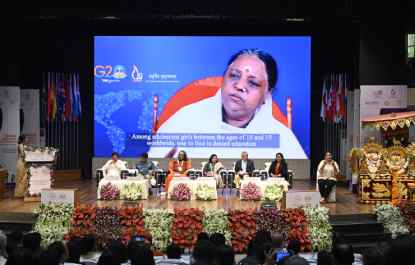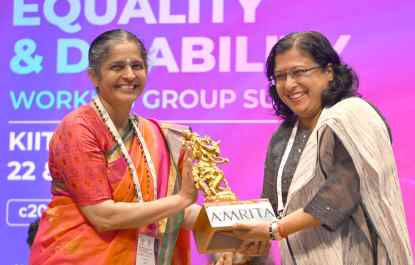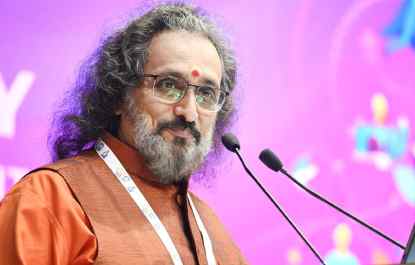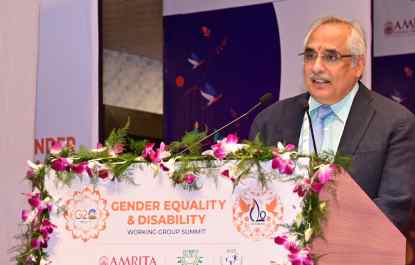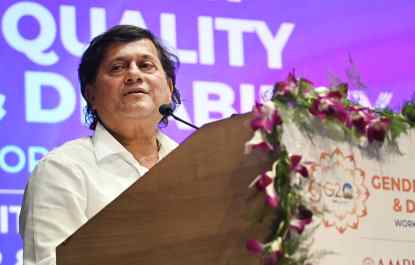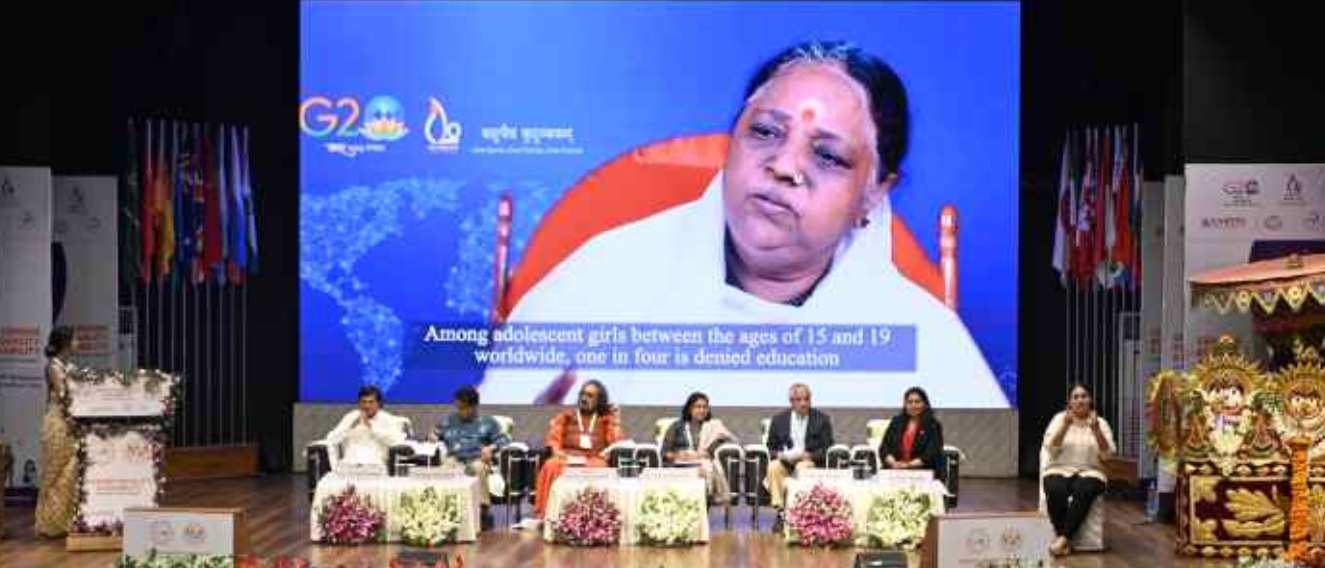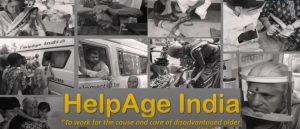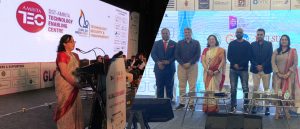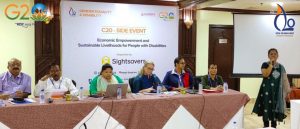Dignitaries who spoke at the gathering emphasised the urgent need to address systemic issues such as discrimination, gender-based violence, and economic disparities.
The Gender Equality and Disability (GED) Working Group for Civil 20, an official Engagement Group of India’s G20 Presidency, inaugurated its Summit in Bhubaneswar, Odisha. Hosted by Kalinga Institute of Industrial Technology (KIIT), more than 300 delegates with civil society organisations and other stakeholders from around the world are participating in discussions and workshops that will directly impact the policy recommendations for the C20 Summit in Jaipur in July.
The focus is to address the multifaceted dimensions of inequalities and disadvantages experienced by different genders and people with physical and mental disabilities, including access to education, healthcare, financial and environmental resources, decent work, infrastructure, and decision-making. GED’s deliberations are based upon the underlying systemic issues, such as discrimination based on gender or ability, gender-based violence, lack of representation, and economic disparities.
As Chair of C20, Amma addressed the gathering through video message. She emphasised how society must help those who live on the margins, as there will be a ripple effect that will uplift all social and economic sectors.
“Many nations still treat women as inferior. Despite the world making tremendous progress in last many decades, there still is a great reluctance and mental block in acknowledging women’s equality. Among adolescent girls worldwide, one in four is denied education and employment. In the case of boys, this statistic is only one in ten. When women are suppressed, the world loses the productive contribution of 50 percent of its population,” said Amma.
“We should help children and women from marginalised groups escape their vulnerability and not let their hidden capabilities go waste. As women rise and move ahead, men should make way—even prepare the way—for them. Men should stop being a one-way street, and, instead, try to become a broad highway. Instead of trying to develop their muscle power like men, women should try and develop their heart muscles. They must be ready to accept what comes and move forward, without losing their self-confidence. We should create circumstances for them to succeed.”
Amma added that this intention must include supporting young women in their access to higher education.
“Even among the girls studying in our college, parents pressure them to get married once they complete their undergraduate degrees. Few are allowed to pursue their PhD. The parents pull them back, saying that by the time they complete their PhD, they will be past marriageable age and it will be difficult to find them a husband. If we live in fear that our girls will not be able to get married, can anything be accomplished? If we create the right circumstances, they can definitely bring out their talents and make them useful for society. Right from childhood, boys should be taught to treat women and girls with respect,” concluded Amma.
“Gender equality and disability rights are critical issues, and we need to work together to address them. Gender discrimination is deeply ingrained in our societies. We need a holistic approach that addresses aspects like education, healthcare, and employment that affect vulnerable and marginalized groups,” said Dr. Achyuta Samanta, Founder of KIIT, in his address.
“This means shifting gender relations, promoting women leadership, and engaging men and boys in the process of attaining gender equality. Let us all continue to work together to make a difference. The power of collaboration is immense and together, we can make a better world.”
Swami Amritaswarupananda Puri is with the C20 Troika and a Steering Committee Member. He expressed that without recognising and accepting women as equals, true freedom, happiness, harmony, and coexistence will remain a far cry.
“Even though the world has become relatively more pro-women, a lot still needs to change. In many countries and cultures, there is an urgent need for women to be liberated from the intellectual and psychological clutches of men and society. Men must be compassionate and unchain women from the shackles of their past. Women, too, must heighten their consciousness to come out of this psychological conditioning that society has forced on them,” said Swamiji.
“Men and women are like two wings of a bird. Unless they work in harmony as a single unit, our efforts to create a balance in society will be futile. However, I don’t believe in Western style feminism. To fight for their rightful claims, women do not have to copy and speak like men. Women inherently have greater strength than men. They should tap into that potential without losing their originality and feminine aspects.
“Rwanda is a good example where women have made great strides in gender equality without losing their originality or culture. With gender equality gaining momentum in the world, the issue of disability should also be seriously addressed. Unless full and barrier free access is recognised as an enforceable right, we will not have an inclusive society. We support, and are about to execute, full and barrier free accessibility and disability inclusion as a standalone and dedicated Working Group of C20.”
Prof. Bhavani Rao R is an India Coordinator with GED and the UNESCO Chair in Gender Equality and Women’s Empowerment at Amrita Vishwa Vidyapeetham. She honoured Amma’s initiatives to uplift girls and women, as it uplifts us all.
“Amma creates a safe space for all voices to be heard, in her embrace – voices of women, men, children, marginalized and minority communities, even the environment. What is not that well known is the tremendous humanitarian projects and efforts that go into addressing the pain in these voices,” said Dr. Rao.
“Under Amma’s leadership, the Working Group on Gender Equality & Disability pushes the agenda of a harmonious world for all sexes and for all those with disabilities. Where we join our voices, so we may be stronger, wiser, and not just heard – not as a cacophony, but in harmony and with clarity.”
Other dignitaries present included Vijay Nambiar, C20 Sherpa; Phoolranee Rampadarath from Ministry of Gender Equality & Family Welfare, Republic of Mauritius; and C20 International Advisory Committee Members Ramu Damodaran and Naila Chowdhry. Kalpana Devi Koonjoo-Shah, Hon’ble Minister, Gender Equality & Family Welfare, Republic of Mauritius, addressed the audience virtually.
GED is committed to holistically examining and addressing the multifaceted dimensions of inequalities and disadvantages experienced by the genders and those with physical and/or mental disabilities. It intends to reinforce an approach to equality and development through an understanding that mutual respect and compassion are to be at the core of global governance for societies and the planet to flourish sustainably.
Through this lens, GED’s work spans eight subthemes: Physical & Mental Health; Economic Empowerment & Sustainable Livelihood; Education & Skill Development; Society & Culture; Engaging Men & Boys; Safety & Security; Environment & Disasters; and Disability.
